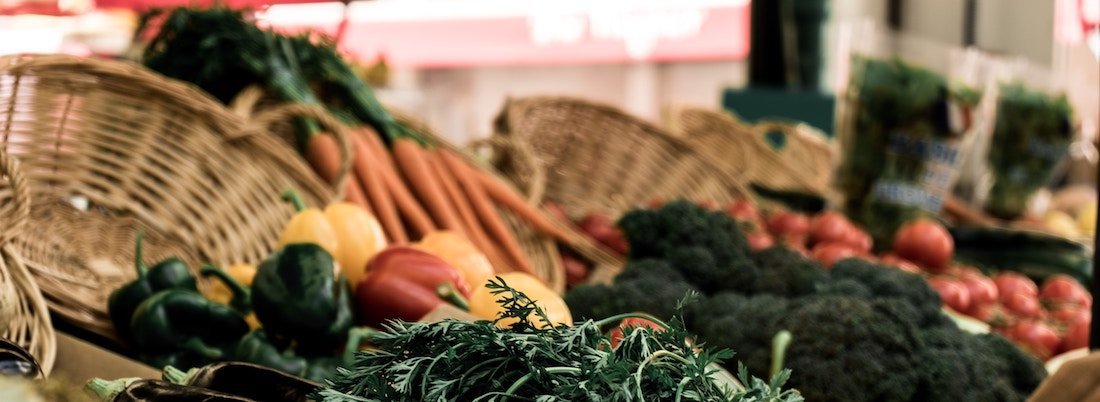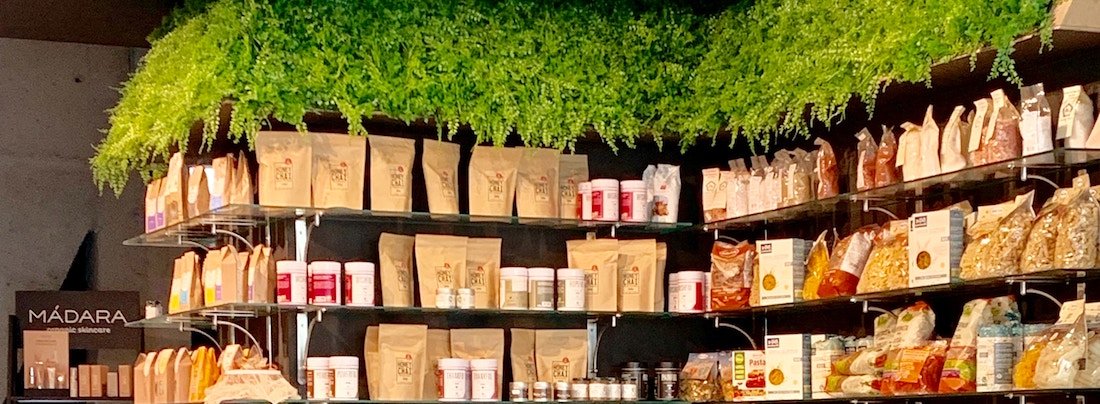Date published: 30.09.2019
The UK organic market: everything you should know
Organic is thriving. It is one of the strongest consumer trends in the market today. At Shopmium, we have more and more campaigns around organic products. And these campaigns are very successful with shoppers! To better understand the organic trend, we decided to take a deep-dive into organic sales in supermarkets and consumer expectations.
Sales are growing steadily
The UK organic market has been experiencing steady growth over the past years. According to the Soil Association Organic Market 2019 report, organic sales reached £2.33 billion in 2018, increasing by 5.3%. The UK organic market is expected to be worth £2.5 billion by 2020.
The three main distribution channels are:
- Supermarkets, which accounted for 65.8% of organic sales in 2018. Supermarket sales of organic products increased by 3.3% compared to the prior year.
- Independent retailers, which captured 16% of the market in 2018 with sales increasing by 6.2%. New independent retailers and wider ranges have improved the choice of organic products in these stores.
- Home delivery, which represents 14% of all sales. It is the fastest growing channel, at 14.2%. By 2023, home delivery should make up a quarter of all sales of organic products in the UK.
Organic beers, wines and spirits and chilled foods are the main categories driving growth. Organic fresh produce and canned and packaged grocery are also growing significantly.
Behaviours are evolving
Many British consumers are becoming more conscious about what they buy and are adopting sustainable behaviours. The latest IRI UK Shopper Insights report shows that:
- 73% of British shoppers prefer products with environmentally friendly packaging
- 67% prefer to buy products from companies that respect the environment
- 65% prefer to buy products from companies that demonstrate fairness, transparency and integrity
- 42% are willing to pay more for organic or “Km 0” food
According to research from Kantar Worldpanel, the top reasons UK consumers believe organic products are better than non-organic products are:
- Taste (for 57% of consumers)
- Health benefits (for 52%)
- Nutrition levels (for 44%)
- Ethical standards of production (for 40%)
Clare McDermott, Business Development Director at the Soil Association, explains: “We know shoppers are putting increasing value on trust, transparency and traceability when making their purchasing decisions. Organic delivers on those values and is also increasingly seen as the healthy and ethical choice thanks to mounting evidence of the difference between organic and non-organic, both in terms of nutrition and environmental impact. This stamp of assurance will only become more important as understanding of organic increases and we look toward the formation of new trade deals post-Brexit.”

There is a wider choice of products in store
To capitalise on this trend, many brands are developing organic lines to acquire new customers and generate additional sales in-store. Several leading brands have recently launched new organic products such as Babybel, Carte D’Or, Knorr, Red Bull and Tropicana.
Andre Burger, Vice President of Foods at Unilever UK, talked to the Scottish Grocer about Knorr going organic. He explained: “The organic food market is continuing to grow, which presents a huge opportunity for both retailers and brands. As the leading stock brand, we have identified a need for an organic offering. These ranges will appeal to consumers looking for natural, home cooked flavours – but without the hassle – and we expect them to add incremental value to the category”.
Smaller brands are also offering more organic options. Percol for example partnered with Shopmium to promote its brand-new range of ground coffee which is Fairtrade, organic and comes in fully home-compostable and plastic-free packaging. David Brooks, Managing Director at Percol, explained: “For most of us, a decent cup of coffee is a daily must. And while the modern consumer is always looking for great taste, they’re also caring more and more about the sustainability of each cup.”
Discounters are setting the agenda
According to Kantar Worldpanel data, three retailers lead the organic market representing two-thirds of organic sales in supermarkets: Sainsbury’s, Tesco and Waitrose. They each have a market share of around 23%.
However, it is the discounters that are setting the agenda for organic in supermarkets. Aldi and Lidl are growing ahead of other retailers. They have more than 5% share of the UK organic market (more than Marks & Spencer), even though they only offer a relatively small range of core everyday lines. With discounters leading the growth in the UK food and grocery market, this trend is set to continue. The discount supermarket market share could reach 10% in the next five years.
This interest from discounters is driving the major supermarkets to consider organic products as a ‘must have’ in their ranges. As such, the top three organic retailers, Morrisons, Asda and Co-op, are adding organic products in-store, taking market share away from the three biggest players.

Beauty and well-being are at an all-time high
Beauty has been slower to go natural compared to other categories. However, experts say 2018 is the year sustainable beauty and well-being became mainstream in the UK. Sales of certified organic and natural beauty products increased by 14%, reaching £86.5 million.
Major brands such as L’Oréal’s Garnier are tapping into the growing demand. Garnier launched a new range of organic-certified skincare products early 2019, made with recycled and recyclable packaging. Charlotte Blanchard, General Manager Garnier UK and Ireland, told A1 Retail Magazine: “Garnier was one of the first brands to use plant-based products 115 years ago, and continues to push the boundaries of naturality today. We’re really proud of our natural heritage and are thrilled that, after 10 years of hard work and innovation, we have been able to bring the first truly affordable certified organic products to market, at a time when consumers are caring more and more about the quality of the ingredients they use on their skin.”
There are many opportunities beyond organic
If organic sales have grown steadily in recent years in the UK, the “free from” market is growing much faster. Price remains an important barrier for shoppers to buy organic. According to research from Kantar Worldpanel, 72% of British consumers believe organic food is too expensive. And a vast majority of consumers of organic food are light buyers: 81% spend less than £40 per year on organic food.
As such, organic is not as big in the UK as it is in other European countries. In France for example, the market share of organic products is three times larger than in the UK.
However, many consumers actively seek natural products. The IRI UK Shoppers Insights report shows that the three main characteristics of a quality product for UK consumers are good taste (for 64%), be natural (for 46%) and quality raw material (for 43%).
As such, beyond organic, natural and “free from” products have great potential. The success of brands such as Alpro and Whole Earth are good examples.
As a conclusion, the organic market in the UK continues to grow as consumers become more environment and health conscious. More and more shoppers buy organic products and are willing to pay a premium price. By creating new organic offerings, brands can increase their sales in-store. However, beyond the organic trend, British consumers are especially concerned about naturalness. With natural and “free from” products, brands can reach an even larger customer base.